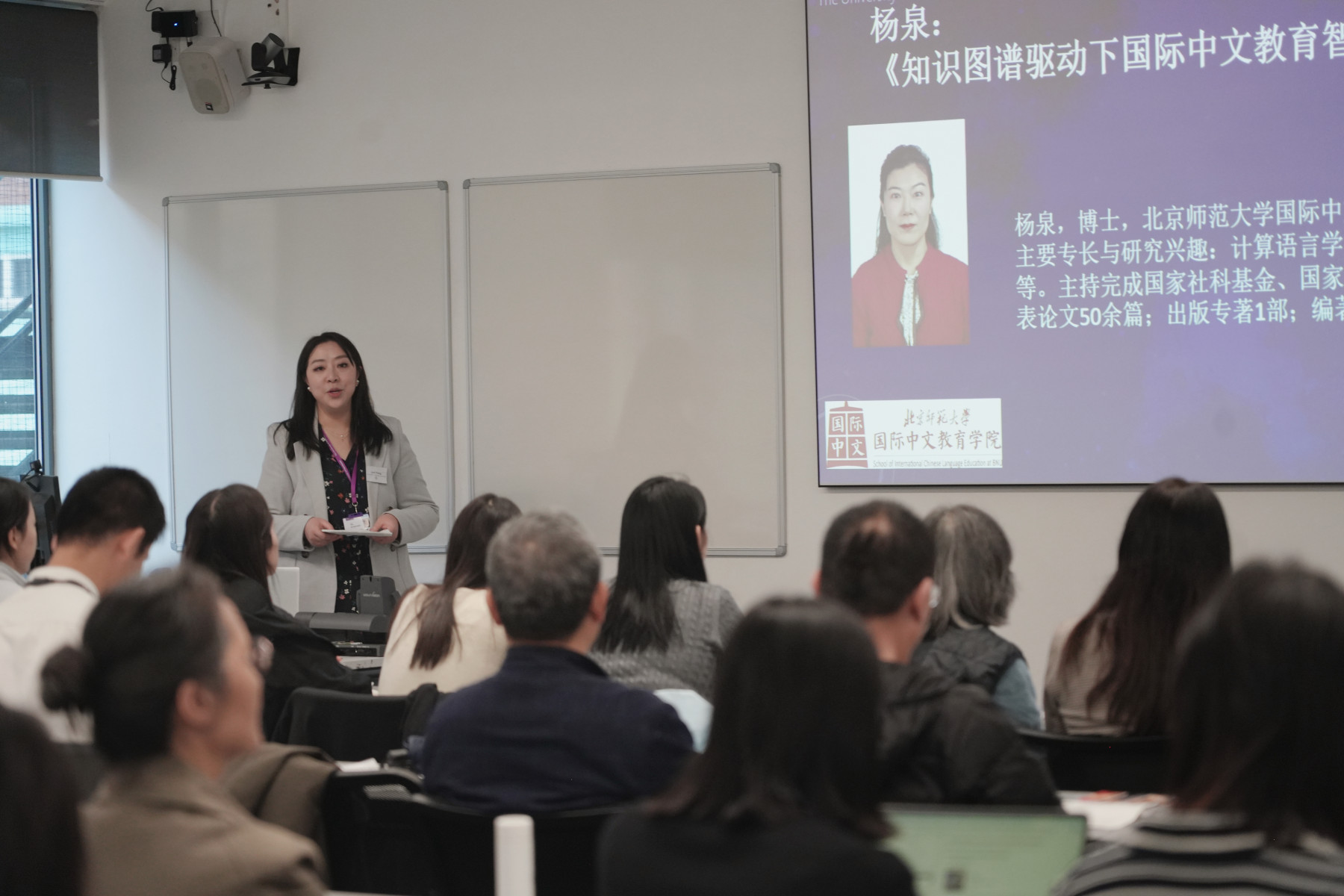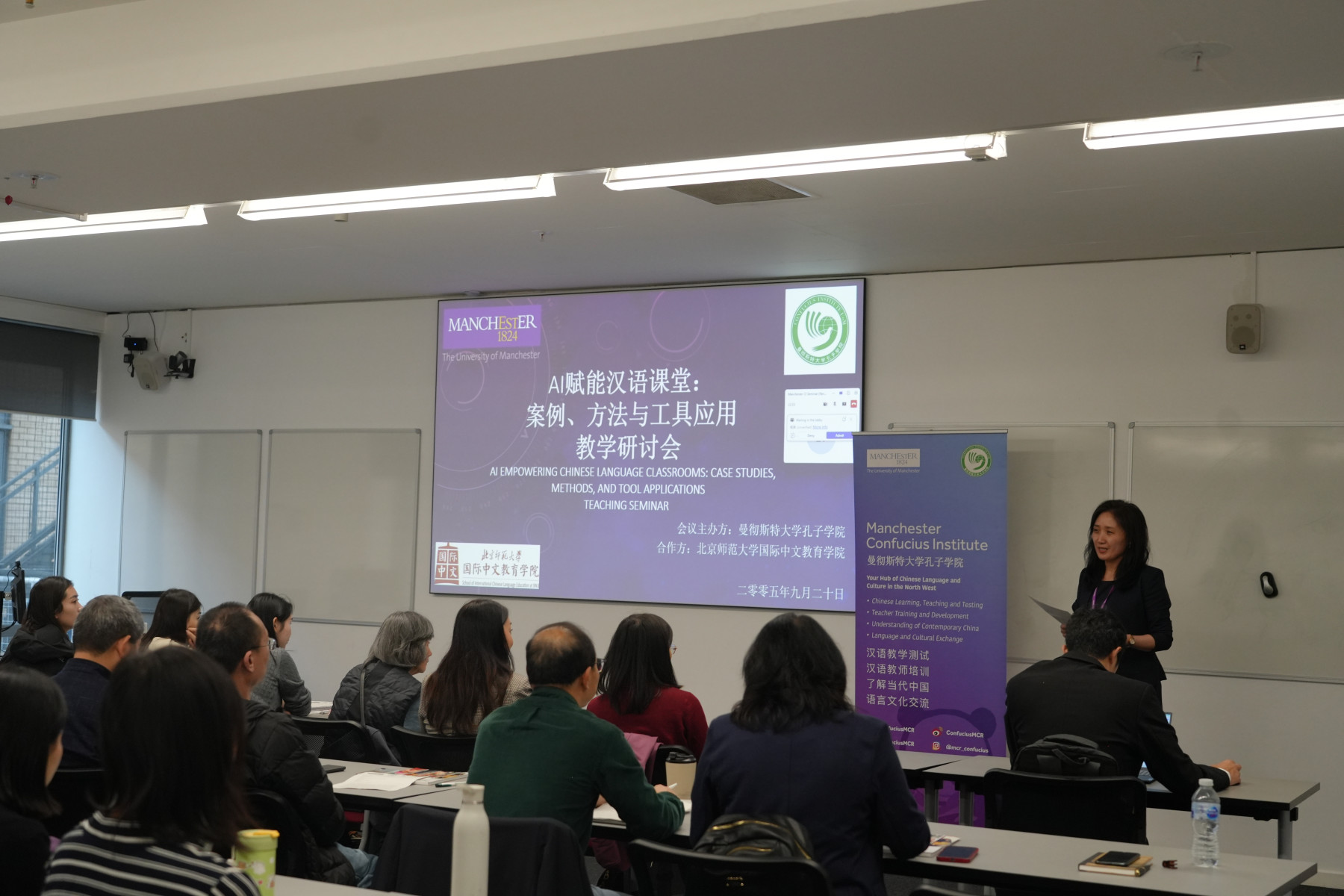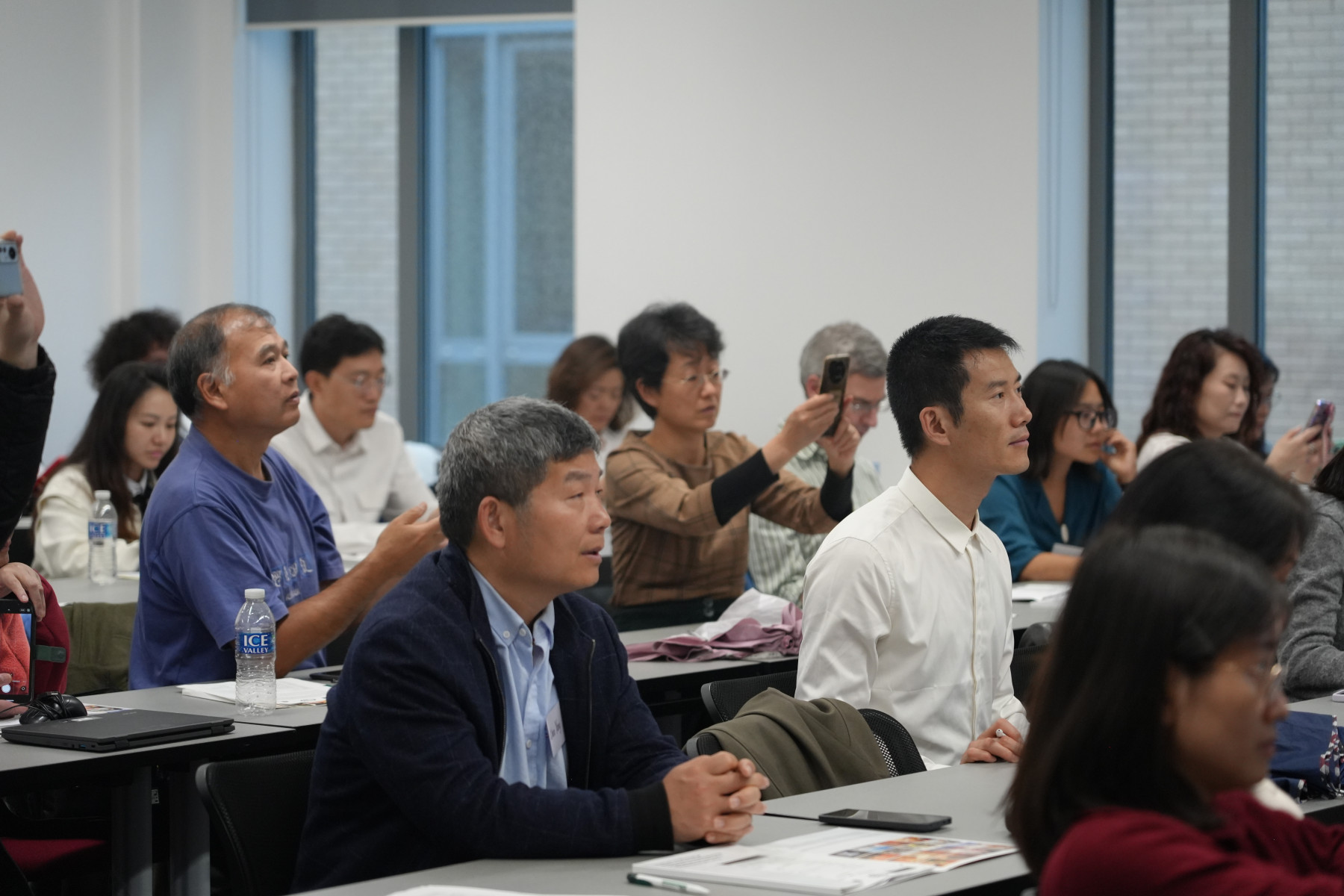Integrating AI-led innovation into Chinese teaching
Senior Language Tutor and Teaching Coordinator Luxi Yang reflects on the first large-scale in-person “∞¿«…Á«¯ Confucius Institute Teaching Seminar since the pandemic.
On a drizzly Saturday morning on 20 September, the University Place building at The University of “∞¿«…Á«¯ was unusually lively for a weekend. 55 Chinese language educators from across the UK braved the rain to attend the long-awaited teaching seminar ‚ÄúAI Empowering Chinese Classrooms: Case Studies, Methods, and Tool Applications‚Äù. As the Project Lead for the event, I stood at the entrance greeting each participant. Watching them enter with curiosity and anticipation, I felt both excited and deeply moved - this was the first relatively large-scale, in-person teaching seminar hosted by “∞¿«…Á«¯ Confucius Institute since the pandemic, and an important step in exploring the future of Chinese education in the era of artificial intelligence.
From smart disciplines to learning designers: A paradigm shift in education
When Professor Yang Quan from the School of Chinese International Education at Beijing Normal University delivered her keynote speech on “Smart Disciplines Driven by Knowledge Graphs” via Teams, the audience fell silent in thought. She showed us how AI is reshaping the very foundation of international Chinese education - knowledge is no longer a set of isolated islands, but an organically connected network built through knowledge graphs. This is not merely a technical upgrade; it represents a fundamental rethinking of how academic disciplines are structured and developed.
Next, Ms. Xuan Li from SOAS, University of London shifted the focus back to people. Her statement - “From traditional lecturers to learning designers” - resonated deeply with every teacher present. When AI can now deliver knowledge, where does the unique value of teachers lie? The answer became clear: in designing learning experiences, inspiring students’ curiosity, providing emotional support, and nurturing intercultural thinking.

Blending theory and practice: Bringing AI into the classroom
The afternoon sessions were equally engaging. Professor Yang Lijiao from Beijing Normal University introduced a ‚ÄúChinese Text Readability Evaluation System‚Äù, demonstrating the scientific precision AI can bring to curriculum design and content adaptation. Meanwhile, Shui Bingling, a former volunteer teacher at the “∞¿«…Á«¯ Confucius Institute, showcased her creative integration of AI tools in classroom game design - bringing the technology to life in everyday teaching practice. From conceptual frameworks to classroom applications, the seminar provided participants with a comprehensive map of AI‚Äôs role in Chinese language education.
Particularly noteworthy was Ms. Xuan Li’s second workshop, “To Do a Good Job, One Must First Understand the Need.” Starting from micro-skills such as pinyin and character instruction, she demonstrated how to select suitable AI tools based on specific teaching objectives. Her rational and pragmatic approach reminded us that amidst the fervour for new technologies, clear-headedness and pedagogical purpose remain essential.
A shift in mindset
The event’s significance extended well beyond technical learning. It provided the UK’s Chinese education community with a practical guide for AI integration, built a valuable platform for dialogue between academics and frontline teachers, and marked the beginning of a new era of human–AI collaboration in international Chinese education. During the discussions, I could sense teachers transforming - from initial anxiety to confident anticipation. That shift in mindset was, in itself, the greatest success.
One of the participating teachers commented after the seminar:
We gained cutting-edge knowledge about AI and learned practical tools. This is one of the first major symposiums in the UK that truly focuses on AI-driven Chinese teaching and emphasizes classroom implementation.

Gratitude and growth: Moving forward through challenges
Looking back at the project preparation process, every stage was filled with challenges - from sudden changes in key speakers and managing an unexpectedly high number of registrations, to coordinating livestreaming equipment and on-site operations. Each step tested our problem-solving skills and resilience.
I would like to express my heartfelt thanks to our Confucius Institute Directors for their trust and support, to Beijing Normal University for their generous assistance, and to my colleagues Nora and Tessa for their flawless collaboration.
As the project lead responsible for coordinating the programme as well as the logistics, I was reminded that in the digital intelligence era, the boundaries of a teacher’s role are constantly expanding. We are no longer only educators - we are also project managers, technology integrators, and change facilitators. From budget and crisis management to team coordination and seminar chairing, every challenge became a valuable opportunity for personal growth.
Looking ahead
As the last participant left the venue, the rain was still falling outside - but my heart was filled with sunshine. AI is not the end of education; it is a new beginning. It frees us from administrative burdens, allowing us to focus on the essence of education - to enlighten minds, nurture hearts, and bridge cultures.
The autumn rain in “∞¿«…Á«¯ could not dampen the teachers‚Äô enthusiasm for learning; it only made our gathering feel even more precious. I believe that as we all return to our classrooms with new ideas and tools, the seeds of AI-empowered Chinese education have already been quietly sown across the UK. I look forward to seeing them blossom when we meet again next year at “∞¿«…Á«¯.
Drop me an email if you’d like to collaborate with us: luxi.yang@manchester.ac.uk.
